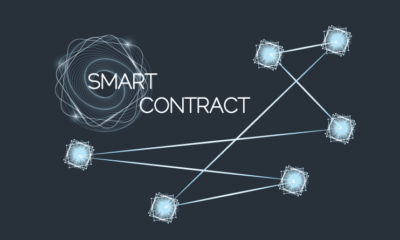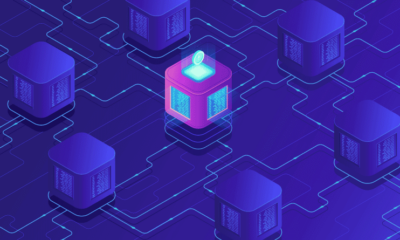
In the world of business, the supply chain is the lifeline to the outside world. The supply chain is what ensures the product getting to market in a timely fashion. Without a dependable supply chain, there would be no product on your grocery shelves when you shop. The entire economy which is dependent upon the exchange of goods and services would come to a grinding halt.
Every few years, there are always improvements to the supply chain in some form. Whether it is due to improved business practices, new laws enacted, or technological breakthroughs, the results are the same. The Internet has been a welcome addition and improvement to the supply chain in the last 20 years with virtually all business being conducted wholly or in part online. The Internet and the rapidly changing landscape of modern computers have delivered the latest improvement to the supply chain and that’s blockchain. Blockchain has delivered in so many ways to improve the supply chain process through various means and we’ll look at them below.
1. Worldwide Funds Transfer
In the days of old, paying suppliers was an onerous task which required banks and wire transfers. Especially if the recipient was in a different country and used different currencies. Exchange rates had to be factored in and sometimes transfers took a week or longer depending on a multitude of things.
With Blockchain, companies can now transfer funds globally no matter where they happen to be or where the recipient is. All of this is done without the use of banks as the Blockchain process ensures complete security and confirmation of funds and confirms every step of the process digitally. Tomcar, an Australia-based vehicle manufacturer, uses this process to pay a portion of its suppliers via BitCoin, a blockchain-based cryptocurrency that is widely used worldwide.
2. Food Safety
The Blockchain process extends to the food industry with the ability to track items individually from the source. Walmart uses this process in many different types of food including Pork sourced from China. In a recent e-coli health scare, Walmart was able to track shipments of produce directly from its origination point and pull that product from the shelves until the true source of the contamination could be verified. Other major companies such as Tyson, Dole, Nestle, and Unilever also utilize the blockchain to keep tabs on their products in much the same way.
3. Complete Transparency of the Production Process
This ties in a little with the food safety angle above as it always entails a tracking process. This is more for the consumer’s benefit as consumers can track the production process and know where their products are sourced from. This is key for products that could be sourced unethically and may cause consternation from the consumer base. Case in point, DeBeers which is known worldwide for their production of diamonds and fine jewelry use Blockchain to assure consumers that their diamonds are sourced and produced ethically.
4. Automation of the Purchasing Process
Blockchain can also be used as a purchasing and allocation agent for businesses to improve that process. This simplifies the entire process which can be cumbersome for Accounts Payable and other purchasing agents. Transactive Grid utilizes Blockchain to monitor their solar panels and when the application senses a surplus of power, it can reallocate that surplus to other areas.
5. Blockchain as Escrow
The shipping industry has taken notice of Blockchain in a major way (we’ll cover other aspects of this industry below) and has utilized its advantages to great effect. Blockchain can be used as an escrow service to keep both shipper and transit company honest. 300Cubits runs such a service as the constant battle between no-shows from the shipper and overbooking from the transit companies are a consistent problem.
Blockchain uses a token service which enables shippers and transit companies to each deposit a token upon initiating a contract to ship a product. This token is usually in the form of some form of cryptocurrency that is agreed upon by both parties. If the shipment goes as planned, both companies take their tokens back at the end of the contract. If an agreement is broken, the offending party loses their token and the other party keeps both tokens.
6. Data Entry
Blockchain can also be used in the field of Data Entry in business as Waltonchain and VeChain are two such applications which use this medium. Both applications use RFID tags on physical products to reduce manual data entry.
7. Improved Bill of Lading
Another aspect of the shipping industry that is now taking advantage of Blockchain is the improvement of the bill of lading. In years past, mistakes sometimes were made in the record-keeping process of items that are shipped which caused huge headaches along the process from shipper to recipient. Zim, a shipping company from Israel, uses Blockchain via Wave Ltd. to ensure error-free documentation and reducing costs in the supply chain.
8. Tracking of Cargo in Real-Time
Tying in with a bill of lading is actual tracking of the product being shipped. This is vitally important to shipping companies to know the exact whereabouts of the physical product along the shipping process. The largest shipping company in the world, Maersk, has partnered up with IBM to utilize Blockchain to improve this vital function of the shipping industry. Blockchain helps reduce fraud and improve Maersk’s on-time delivery percentage.
As you can see, Blockchain is becoming one of the most vital weapons in-use to improve the supply chain process and this trend will continue to grow in the years to come.








